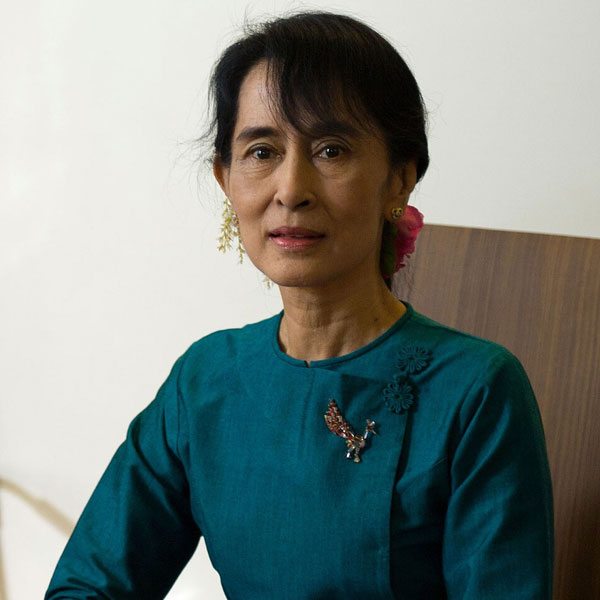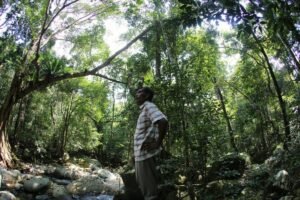
March 11, 2018; NPR
The US Holocaust Memorial Museum has revoked Aung San Suu Kyi’s Elie Wiesel award, given to those who confront hatred and prevent genocide, in light of her refusal to act on or even acknowledge the genocide being carried out against the Rohingya population in Myanmar (formerly known as Burma).
Suu Kyi was given the award in 2012 in recognition of her work against the Burmese military junta and for a peaceful, democratic Myanmar, a cause for which she spent 15 years under house arrest. Her father, Aung San, negotiated Burma’s independence from Britain. She has been the recipient of nearly a dozen prizes, including the Nobel Peace Prize, the Jawaharlal Nehru Award, and the Congressional Gold Medal. She currently serves as the State Counsellor of Myanmar, a position akin to Prime Minister; even though her party won a supermajority in the last election, she is prevented from holding the office of president because her late husband and her children were not born in Myanmar.
She faces global criticism now because she has refused to acknowledge or alleviate the plight of the Rohingya, a traditionally Muslim ethnic group based in Rakhine state. The country’s Buddhist majority and government refuse to acknowledge the Rohingya as citizens, referring to them as Bengali immigrants. As NPQ covered back in August, since neither Bangladesh nor any other country will allow them in, the Rohingya have nowhere to go. Either they live in refugee camps to which aid workers have little to no access, or they live in what the New York Times’ Nick Kristof has described as “modern-day concentration camps” in their native state, barred from citizenship, education, health care, and most other basic human rights. Hundreds of thousands have been killed, raped, burned, and displaced, but since aid workers and journalists are largely barred from Myanmar, exact statistics and the kind of large-scale interventions that might help have not been forthcoming. Reuters estimated in January that 655,000 Rohingya had been displaced. Al Jazeera reports that “in January, Myanmar and Bangladesh announced a repatriation deal, but rights groups and Rohingya have raised concerns about the agreement, saying it does not guarantee full citizenship, or safety, for those who return.”
The Holocaust Museum has been sounding the alarm for years. In 2013, they published a statement on the situation and staged an exhibition called “Our Walls Bear Witness: The Plight of Burma’s Rohingya.” In 2015, they released a report called “They Want Us All To Go Away: Early Warning Signs of Genocide in Burma” that called their treatment “a modern form of apartheid.” The report claimed that “there is still an opportunity to prevent this devastating outcome.” In 2017, Andrea Gittleman, Program Manager for the Simon-Skjodt Center for the Prevention of Genocide, said that the atrocities being perpetrated were preventable, but that “the international community has discarded much of its leverage to press the Burmese government to protect [the Rohingya].”
Sign up for our free newsletters
Subscribe to NPQ's newsletters to have our top stories delivered directly to your inbox.
By signing up, you agree to our privacy policy and terms of use, and to receive messages from NPQ and our partners.
According to reports, Suu Kyi has lashed out at people who attempt to confront her about the genocide she has overlooked. Neither journalists nor international aid workers have been allowed into Myanmar; in fact, two journalists were arrested just months ago for investigating a mass grave in Rakhine State, where most Rohingya have traditionally lived. Bill Richardson, a former governor of New Mexico and United Nations ambassador, resigned from a Myanmar advisory board because, he said, “I discovered that this board was being used as a cheerleading squad for the government,” and he did not wish to serve on a board that was “devoid of any meaningful engagement with the local communities in Rakhine, whose people the advisory board is meant to serve.” (NPQ has frequently addressed the wisdom of resigning from boards that no longer fulfill their mission.)
On March 6th, the Museum sent a letter to Suu Kyi, stating,
Based on inspiration that you created for millions around the world, with your long resistance to military dictatorship, and your advocacy for freedom and human rights for all the people of Myanmar, we were honored to present you with the first Elie Wiesel Award in 2012. It is with great regret that we are now rescinding that award….We had hoped that you—as someone we and many others have celebrated for your commitment to human dignity and universal human rights—would have done something to condemn and stop the military’s brutal campaign and to express solidarity with the targeted Rohingya population…we urge you to use your unique standing and your official role as State Counsellor and Foreign Minister to cooperate with international efforts.
The museum’s bold step is not only directly aligned with its mission, it is an example others may follow. Pressure is mounting for the Nobel committee to revoke her peace prize; an online petition has nearly 500,000 signatures. Though it may not help the refugees directly, it is a loud call for the world’s attention and a principled act of disengagement based on mission and principle.—Erin Rubin











